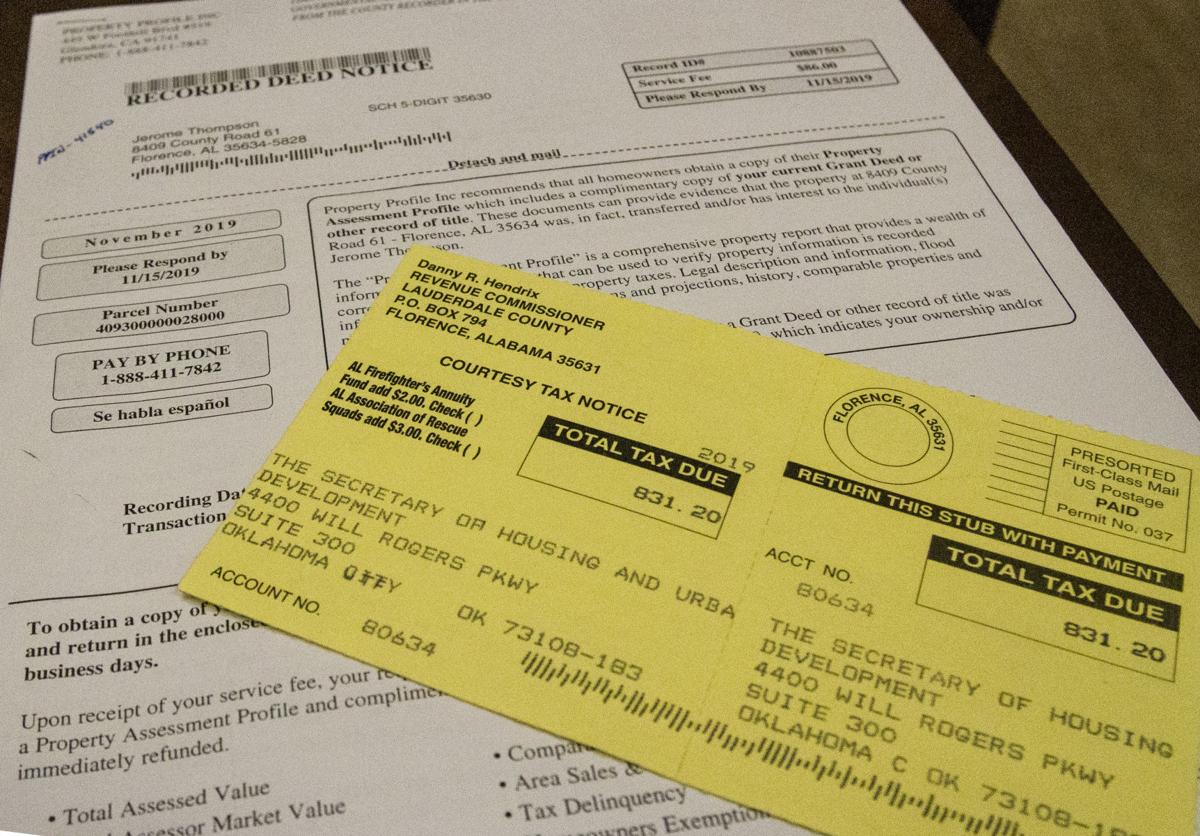Home>Home Maintenance>How To Fight Property Assessment In Michigan


Home Maintenance
How To Fight Property Assessment In Michigan
Modified: March 6, 2024
Learn how to fight your property assessment in Michigan and save money on your home maintenance expenses.
(Many of the links in this article redirect to a specific reviewed product. Your purchase of these products through affiliate links helps to generate commission for Storables.com, at no extra cost. Learn more)
Introduction
Welcome to our comprehensive guide on how to fight property assessment in Michigan. Property assessments are an integral part of the home maintenance process, as they determine the value of your property for tax purposes. However, there are instances where you may believe that your property has been assessed incorrectly, resulting in higher taxes than necessary.
In this article, we will provide an in-depth understanding of property assessments in Michigan and guide you through the steps required to challenge an assessment. We will discuss the reasons for challenging property assessments, the process of preparing for an appeal, gathering supporting evidence, filing an appeal with the Michigan Tax Tribunal, presenting your case at a tribunal hearing, and understanding the decision-making process.
By the end of this guide, you will have the knowledge and confidence to navigate the assessment appeal process, effectively present your case, and potentially reduce your property tax burden. So, let’s dive in and learn how to fight property assessments in Michigan!
Key Takeaways:
- Challenging property assessments in Michigan can help reduce property taxes if the assessment is inaccurate. Understanding the process, gathering evidence, and presenting a strong case are crucial for a successful appeal.
- Filing an appeal with the Michigan Tax Tribunal and presenting a compelling case at the tribunal hearing are key steps in fighting an inaccurate property assessment. Seeking professional advice and staying informed are essential for navigating the process effectively.
Read more: How To Do A Property Assessment
Understanding Property Assessments in Michigan
In order to effectively challenge a property assessment, it’s crucial to have a clear understanding of how property assessments work in the state of Michigan. Property assessments are conducted by local assessors who determine the value of a property for tax purposes. The assessed value is then used to calculate property taxes.
In Michigan, property assessments are generally based on the market value of the property. The market value is the estimated price that the property would sell for in an open and competitive market. This value is determined by looking at various factors such as the property’s location, size, condition, and recent sales of comparable properties in the area.
Assessments are typically conducted on a regular basis, known as the assessment cycle. In Michigan, the assessment cycle varies depending on the county, but it is usually done every two or three years. During this time, the assessor evaluates the property and updates the assessed value accordingly.
It’s important to note that property assessments in Michigan are not always accurate. There may be instances where the assessed value of a property is higher than its actual market value. This can result in homeowners paying higher property taxes than they should. Therefore, it’s crucial for property owners to review their assessments carefully and take action if they believe it is inaccurate.
Next, let’s explore the reasons why you may want to challenge a property assessment in Michigan.
Reasons for Challenging Property Assessments
There are several valid reasons why property owners in Michigan may choose to challenge their property assessments. Understanding these reasons will help you determine whether it is worth pursuing an appeal. Here are some common scenarios that may warrant challenging a property assessment:
- Inaccurate assessment: One of the most common reasons for challenging a property assessment is if you believe it is inaccurate. This could be due to factors such as errors in property data, improper valuation methods, or discrepancies between the assessed value and recent sales of comparable properties.
- Property damage or decline in value: If your property has suffered damage or experienced a decline in value, it may be appropriate to challenge the assessment. This could be caused by factors such as natural disasters, property renovations, or changes in the local market that negatively impact property values.
- Unequal assessment: If you believe that your property has been assessed unfairly compared to similar properties in the area, you may have grounds for an appeal. Assessments should be equitable and consistent, so if you can demonstrate that your property is being assessed at a higher rate than others, it may be worth challenging.
- Excessive assessment: If your property assessment is significantly higher than neighboring properties and does not align with market trends, it may be considered excessive. This can result in disproportionately high property taxes, making it worthwhile to challenge the assessment.
- Change in property use: If there has been a change in the use of your property, such as converting a residential property into a commercial property or vice versa, it may impact the assessment. In these cases, it is important to ensure that the assessment reflects the correct classification and use of the property.
It’s important to thoroughly evaluate your property assessment and gather evidence to support your case before proceeding with an appeal. In the next section, we will discuss the steps you can take to prepare for a property assessment appeal in Michigan.
Steps to Prepare for a Property Assessment Appeal
Preparing for a property assessment appeal in Michigan requires careful planning and attention to detail. By following these steps, you can maximize your chances of success:
- Educate yourself: Familiarize yourself with the property assessment appeal process in Michigan. Research the relevant laws, regulations, and deadlines to ensure you are aware of your rights and obligations as a homeowner.
- Review your property assessment: Carefully examine your property assessment and gather all the relevant information, including the assessed value, property characteristics, and any recent changes or assessments made by the assessor. Look for any discrepancies or errors that could be used as grounds for an appeal.
- Research comparable properties: Gather information on recent sales of comparable properties in your area. Look for properties that are similar in size, location, and condition to your own. This will help you establish a basis for comparison and support your argument that your property is over-assessed.
- Document property improvements or damage: If you have made significant improvements to your property or if it has suffered damage, compile documentation to support your claim. This can include receipts, permits, photographs, or other evidence that demonstrates the impact on the value of your property.
- Engage a professional appraiser: Consider hiring a professional appraiser to conduct an independent valuation of your property. An appraiser’s expertise can provide a strong foundation for your appeal, as their opinion holds weight in the assessment process.
- Consult with an attorney or tax professional: If you feel overwhelmed or unsure about the appeal process, seek advice from an attorney or tax professional who specializes in property assessment appeals. They can provide guidance, review your case, and offer valuable insights to strengthen your appeal.
- Document your correspondence: Keep a record of all communications with the assessor’s office, including emails, letters, and phone calls. This will ensure that you have a clear paper trail and can refer back to important details or requests made throughout the process.
- Prepare a written appeal: Craft a well-organized and persuasive written appeal that outlines the reasons why you believe your property assessment is incorrect. Clearly state your arguments, provide supporting evidence, and reference applicable laws or regulations. Use a professional and respectful tone throughout your appeal.
By diligently following these steps, you will be prepared to file a strong property assessment appeal in Michigan. In the next section, we will discuss the process of gathering supporting documents and evidence.
Gathering Supporting Documents and Evidence
When challenging a property assessment in Michigan, it’s essential to have solid supporting documents and evidence to strengthen your case. The more evidence you can provide to show that your property has been inaccurately assessed, the higher your chances of a successful appeal. Here are some key documents and evidence to gather:
- Comparable sales: Gather information on recent sales of similar properties in your area. Look for properties that are similar in size, location, and condition to your own. This will help establish a basis for comparison and demonstrate that your property is over-assessed.
- Property data: Collect all relevant information about your property, such as its size, number of bedrooms and bathrooms, amenities, and condition. This information can be found through property records, appraisals, or previous assessments.
- Property improvements or damage: Document any significant improvements made to your property, such as renovations or additions. Include receipts, permits, and photographs as evidence of the investment made. Conversely, if your property has suffered any damage or decline in value, gather evidence such as photographs, repair estimates, or insurance claims.
- Tax records: Obtain copies of your property tax records for the past few years. Look for any inconsistencies or patterns that may indicate errors in the assessment process.
- Expert opinions: If you have consulted with a professional appraiser or other experts, include their opinions and reports as evidence to support your case. Their expertise can provide credibility and strengthen your argument.
- Letters or correspondence: If you have previously corresponded with the assessor’s office regarding your property assessment, gather copies of any letters, emails, or other communications. These can be useful in demonstrating your efforts to resolve the issue informally before pursuing an appeal.
- Any relevant laws or regulations: If you believe that your property assessment violates any specific laws or regulations, be sure to gather all relevant information and cite them in your appeal. This will help support your argument and show that your appeal is based on valid legal grounds.
- Documentation of market trends: If there have been significant changes in the local housing market that have affected property values, gather data and reports that showcase these trends. This can help demonstrate that your property assessment does not align with the current market conditions.
Once you have gathered all the necessary documents and evidence, organize them in a clear and logical manner. This will make it easier for you to present your case and strengthen your arguments during the appeal process.
In the next section, we will discuss the process of filing an appeal with the Michigan Tax Tribunal.
When fighting a property assessment in Michigan, gather evidence of comparable properties with lower assessments to support your case. Present this evidence to the local Board of Review to appeal your assessment.
Read more: What Is Property Assessment
Filing an Appeal with the Michigan Tax Tribunal
If you have gathered all the necessary documents and evidence to support your case, it’s time to file an appeal with the Michigan Tax Tribunal. The Michigan Tax Tribunal is an independent body that handles property assessment appeals in the state. Here’s a step-by-step guide on how to file your appeal:
- Obtain the necessary forms: Visit the Michigan Tax Tribunal’s website or contact their office to obtain the required forms for filing an appeal. The forms may vary depending on the type of property being appealed, so make sure you have the correct ones.
- Fill out the appeal forms: Take your time to carefully fill out the appeal forms, providing all the requested information accurately. Be sure to include supporting documentation and evidence that you have gathered to strengthen your case.
- Submit the appeal forms: Once you have completed the appeal forms, submit them to the Michigan Tax Tribunal within the specified timeframe. It’s important to adhere to the deadlines to ensure your appeal is valid.
- Pay the filing fee: There is typically a filing fee associated with submitting an appeal to the Michigan Tax Tribunal. Make sure to include the required payment along with your appeal forms. The fee amount may depend on the value of the property being appealed, so check with the tribunal for the current fee scale.
- Receive confirmation and case number: After submitting your appeal, you will receive a confirmation of receipt and a case number from the Michigan Tax Tribunal. Keep this information handy, as it will be required for any future correspondence or updates regarding your appeal.
- Prepare for the tribunal hearing: Once your appeal is filed, you will be notified of a hearing date where you will have the opportunity to present your case. Use this time to further organize your evidence, review your arguments, and practice your presentation. It may be beneficial to seek professional advice from an attorney or tax professional to help you prepare.
It’s important to note that the appeal process can be complex, and the specific steps and timelines may vary depending on the circumstances. It’s advisable to familiarize yourself with the Michigan Tax Tribunal’s guidelines and seek guidance if needed to ensure you follow the correct procedures.
In the next section, we will discuss what to expect during the tribunal hearing and how to effectively present your case.
Presenting Your Case at the Tribunal Hearing
Once your appeal has been filed with the Michigan Tax Tribunal, you will have an opportunity to present your case at a tribunal hearing. This is your chance to provide evidence, argue your points, and convince the tribunal members that your property assessment is inaccurate. Here’s how you can effectively present your case:
- Organize your evidence: Review all the evidence and documentation you have gathered and organize them in a logical and easy-to-follow manner. Use exhibits, such as photographs, charts, and comparable sales data, to visually support your arguments.
- Prepare your opening statement: Begin the hearing with a well-prepared opening statement that outlines the main issues and arguments in your case. Clearly state your position, summarize your evidence, and state the relief you are seeking from the tribunal.
- Be clear and concise: Present your arguments in a clear and concise manner. Avoid using technical jargon and explain complex concepts in simple terms. This will help the tribunal members understand your points and follow your line of reasoning.
- Address each issue: Take the time to address each issue raised in your appeal and effectively refute any counterarguments made by the assessor. Be prepared to respond to any questions or challenges raised by the tribunal members.
- Be respectful and professional: Maintain a respectful and professional demeanor throughout the hearing. Address the tribunal members and opposing counsel with courtesy and avoid becoming confrontational or emotional. Stick to the facts of your case and let the evidence speak for itself.
- Focus on key points: Prioritize your strongest arguments and evidence. Present the most compelling information early on to capture the tribunal’s attention and support your main claims. This will help create a strong first impression and set the tone for the rest of your presentation.
- Rebut opposing arguments: If the assessor or their representative presents counterarguments against your appeal, be prepared to rebut them. Use your evidence and supporting documents to challenge their assertions and demonstrate the weaknesses in their position.
- Summarize your case: Conclude your presentation with a concise summary of your main points. Restate your position, reiterate the relief you are seeking, and emphasize the evidence that supports your claims. Leave a lasting impression on the tribunal members.
- Remain open to negotiation: During the hearing, the tribunal members may suggest alternative solutions or propose a settlement. Be open to negotiation and consider any reasonable offers that may reduce your property tax burden.
Remember, the tribunal hearing is your opportunity to make a compelling case for why your property assessment is inaccurate. Be well-prepared, confident, and persuasive in your presentation. Professional representation, such as an attorney or tax professional, can also greatly enhance your chances of success.
After the hearing, the tribunal will review the evidence and arguments presented by both parties before reaching a decision. We will discuss the next steps once you receive the decision in the final section of this guide.
Receiving the Decision and Next Steps
After presenting your case at the tribunal hearing, the Michigan Tax Tribunal will review the evidence and arguments presented by both parties before reaching a decision. Once a decision has been reached, you will receive a written notification outlining the tribunal’s ruling. Here are the next steps you can take based on the decision:
- Review the decision: Carefully review the written decision to understand the tribunal’s ruling. Take note of any specific instructions or actions required on your part.
- Accept the decision: If the tribunal rules in your favor and reduces your property assessment, you can accept the decision and proceed with the updated assessment. Be sure to comply with any requirements outlined in the decision, such as filing the necessary paperwork or paying any adjusted property taxes.
- Appeal the decision (if necessary): If you disagree with the tribunal’s decision, you have the option to appeal to the Michigan Court of Appeals. However, appealing to a higher court involves more complex legal processes and should be done with the guidance of an attorney or legal professional.
- Consider other options: If you are dissatisfied with the tribunal’s decision but are not prepared to appeal to a higher court, you may explore other options. These may include negotiating with the assessor or seeking assistance from your local government representative.
- Monitor future assessments: Even if the tribunal ruled in your favor, it’s important to continue monitoring future property assessments to ensure they are accurate. Keep records of any changes to your property or other circumstances that may warrant a reassessment in the future.
- Seek professional advice: If you are unsure about your options or need guidance on the next steps to take, consider consulting with an attorney or tax professional. They can provide expert advice tailored to your specific situation and help you navigate the process effectively.
Remember, the decision reached by the Michigan Tax Tribunal is legally binding, and it’s important to comply with any requirements outlined in the decision. If you choose to appeal or explore other options, be aware of the deadlines and legal processes involved to ensure you adhere to the necessary procedures.
Congratulations on successfully navigating the property assessment appeal process in Michigan. While challenging a property assessment requires effort and persistence, it can result in significant savings on your property taxes. By staying informed, gathering strong evidence, and presenting a compelling case, you have taken an important step in fighting an inaccurate property assessment.
Should you encounter any future property assessment concerns or questions, refer back to this guide or seek advice from professionals in the field. Good luck with your ongoing home maintenance endeavors!
Note: *This guide is meant for informational purposes only and should not be considered legal advice. For specific legal and tax advice, consult with an attorney or tax professional.*
Conclusion
Congratulations! You have reached the end of our comprehensive guide on how to fight property assessments in Michigan. Property assessments play a crucial role in determining your property taxes, and it is important to ensure that the assessment accurately reflects your property’s value. By understanding the assessment process, challenging inaccuracies, and presenting a strong case, you can potentially reduce your property tax burden.
We started by discussing the importance of understanding property assessments in Michigan. Being familiar with how assessments work, the factors involved, and the assessment cycle is essential in identifying discrepancies and determining whether an appeal is necessary.
Next, we explored the various reasons for challenging property assessments, including inaccurate assessments, property damage, unequal assessments, excessive assessments, and changes in property use. These reasons serve as a basis for initiating an appeal and seeking a fair and accurate assessment for your property.
We then detailed the steps to prepare for a property assessment appeal, emphasizing the importance of educating yourself, reviewing your assessment, researching comparable properties, documenting improvements or damage, and engaging professionals when needed. These steps ensure that you are well-prepared to build a strong appeal case.
Gathering supporting documents and evidence is a critical aspect of the appeal process. We discussed the importance of gathering evidence such as comparable sales data, property data, improvements or damage documentation, tax records, expert opinions, correspondence, and market trend information. These pieces of evidence strengthen your arguments and provide compelling support for your appeal.
Filing an appeal with the Michigan Tax Tribunal was the next topic we covered. We highlighted the steps involved, including obtaining the necessary forms, filling them out accurately, submitting them within the specified timeframe, and paying the required filing fee. These steps initiate the formal appeal process and bring your case to the attention of the tribunal.
Presenting your case at the tribunal hearing is a pivotal moment in the appeal process. We provided guidance on how to effectively organize evidence, prepare your opening statement, be clear and concise, address each issue, maintain professionalism, focus on key points, rebut opposing arguments, and summarize your case. An effective presentation increases the chances of a favorable outcome.
Finally, we discussed the next steps after receiving the tribunal’s decision. Whether accepting the decision, appealing to a higher court, considering other options, or monitoring future assessments, staying informed and taking the appropriate actions are crucial in navigating the post-appeal process.
Remember, property assessment appeals require effort, diligence, and often professional guidance. While this guide provides a comprehensive overview, it is important to consult with an attorney or tax professional for specific legal and tax advice.
Thank you for taking the time to read our guide. We hope it has provided you with valuable insights and empowered you to challenge property assessments effectively. By staying informed and taking action, you can ensure a fair and accurate assessment of your property and potentially reduce your property tax burden. Good luck in your home maintenance endeavors!
Frequently Asked Questions about How To Fight Property Assessment In Michigan
Was this page helpful?
At Storables.com, we guarantee accurate and reliable information. Our content, validated by Expert Board Contributors, is crafted following stringent Editorial Policies. We're committed to providing you with well-researched, expert-backed insights for all your informational needs.















0 thoughts on “How To Fight Property Assessment In Michigan”